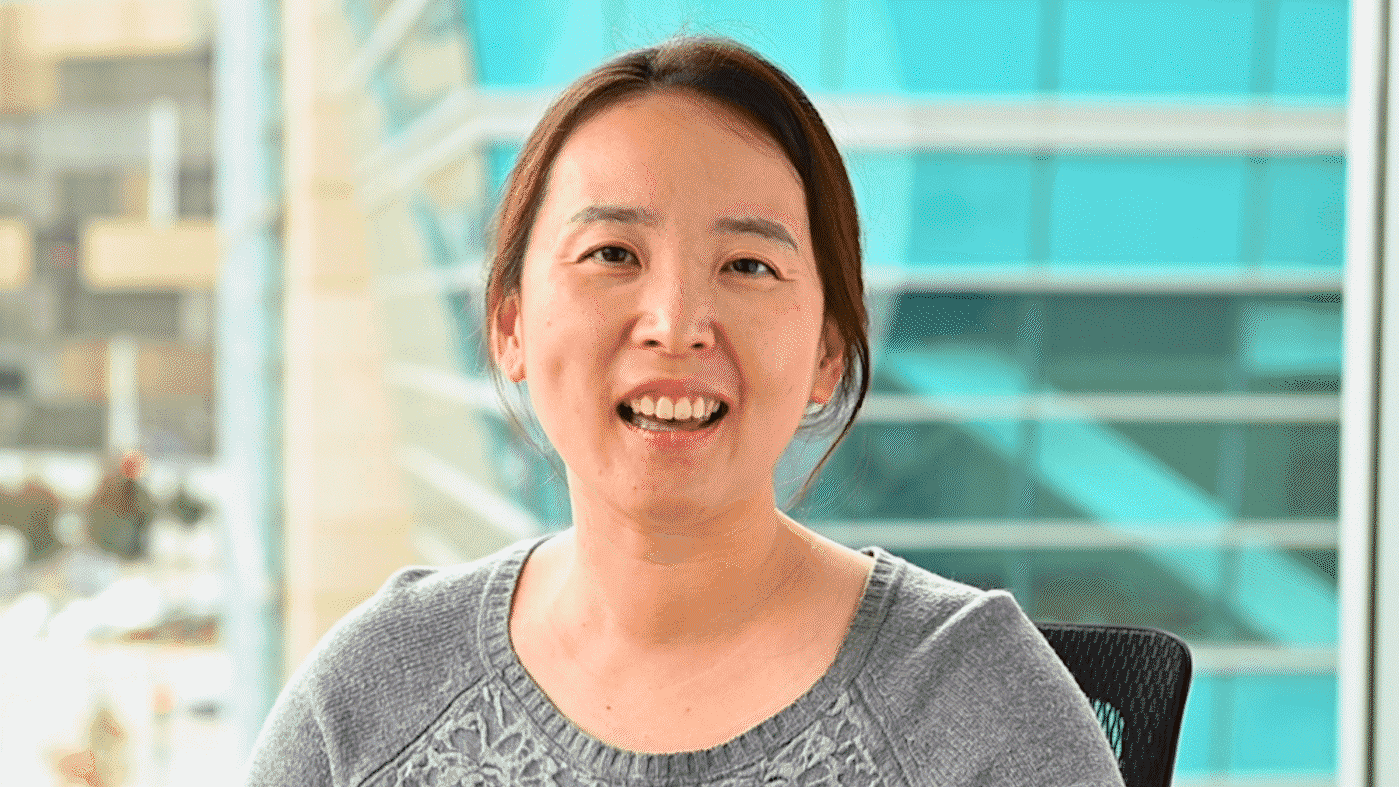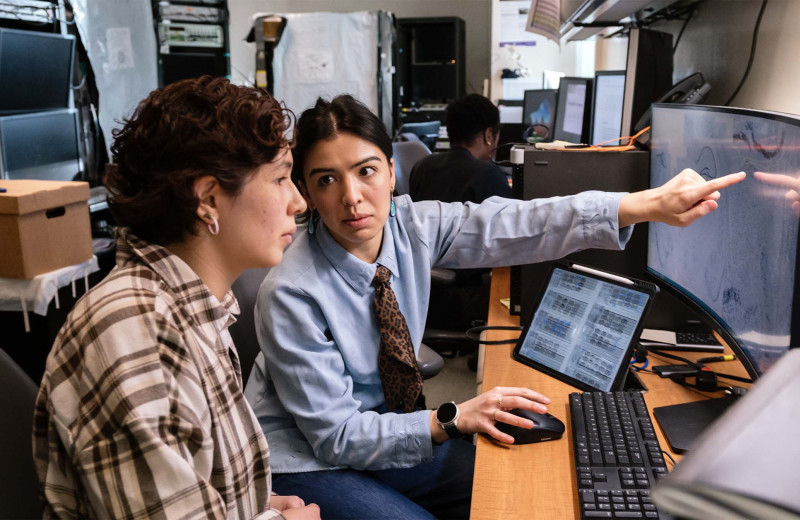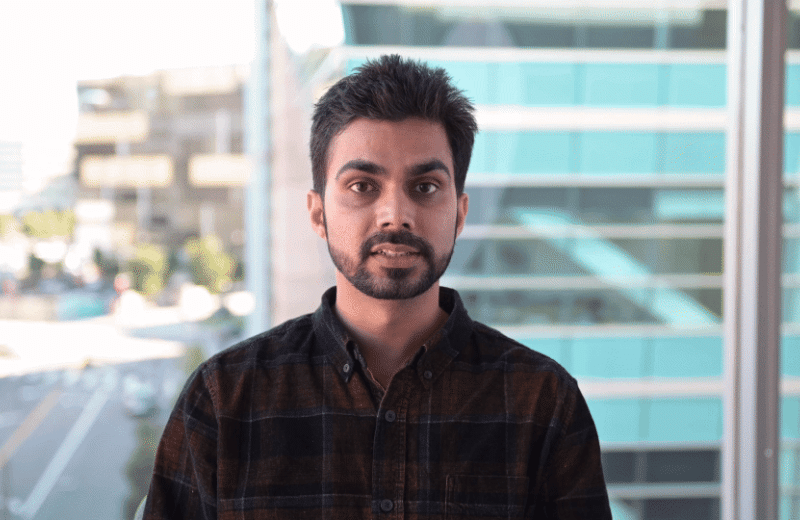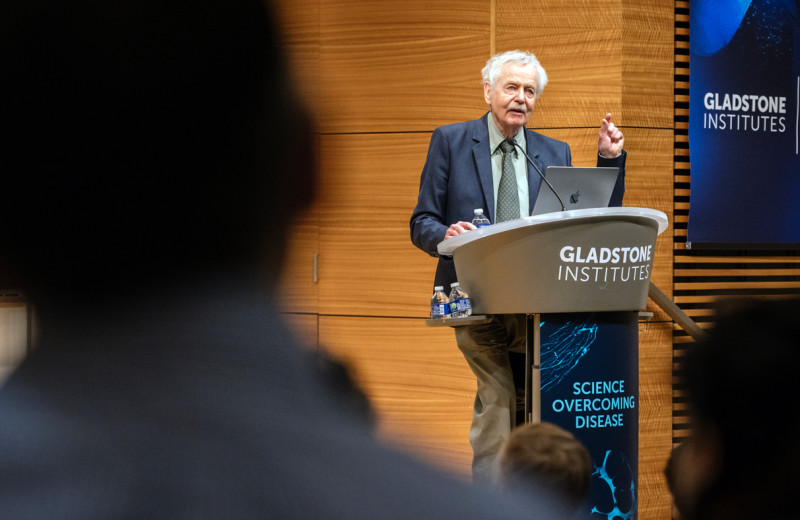Gladstone NOW: The Campaign Join Us on the Journey✕

Seo Yeon Yoon describes her work on Alzheimer's disease, her passion for puzzles, and what AAPI Heritage Month means to her.
Born in South Korea and raised between South Korea, Canada, and the US, Seo Yeon Yoon (she/her) is a research scientist in the Huang Lab at Gladstone Institutes. She majored in integrative biology with emphasis in neuroscience at UC Berkeley, and recently earned her MBA from the Berkeley Haas School of Business.
What brought you to Gladstone?
My undergraduate advisor and faculty advisor strongly recommended that I apply to Gladstone due to its phenomenal reputation in neuroscience research.
What do you like about Gladstone?
People. Gladstone houses great minds who are the leaders in research and operations domains, and are passionate about Gladstone’s goal of using science to overcome disease.
Gladstone’s continued dedication to its people is extraordinary and was made more evident during the COVID-19 pandemic. When the world was shutting down and people were laid off, Gladstone stepped up to ensure the job and financial security of its employees. To be able to give a compensation raise during a time of crisis is a testament to the DNA of this institution and highlights what it truly cares about—people. I’ll always be proud and grateful to Gladstone.
Were you interested in science as a child?
I had a general interest in biology as a child, and I loved to solve puzzles and read. I knew that I wanted to pursue a career in biological sciences, helping people who may see my work useful for their well-being. I had a great family who understood and supported me without any reservation, for which I am incredibly grateful.
Can you describe your current research project?
My research is to understand the why and how of Alzheimer’s disease. I don't have any family members who have been impacted by Alzheimer's, but too many of my friends have had their families affected, and I've seen how they suffer from the disease.
My research is focused on one piece of the Alzheimer’s puzzle—understanding why and how the genetic variant Apolipoprotein E4 increases the risk of being diagnosed with Alzheimer’s at an early age. To understand this piece of the puzzle, I work with great minds in the laboratory of Yadong Huang to find the answer in hopes of finding the cure to the disease.
What or who influenced your decision to work in science?
Marian Diamond. She was my teacher when I was an undergraduate student at UC Berkeley. Her first lecture on human anatomy was a shocker. She brought a fascinator case—a case that English women would use to store hats for weddings—to the podium in an auditorium of 800 students. Dressed in a bright blue blazer, white pants, and an elegant scarf, she lightly stepped up to the podium, put blue nitrile gloves on, opened the fascinator case, and pulled out a human brain. It was my first time seeing a real human brain. It was surreal and awesome to see that such a small tissue that fits into two hands defines who we are as humans. The fascination of the moment has driven my passion to work in science until now.
What do you do when you are not working?
Hiking or eating—my favorite things in the world.
If you could learn to do anything, what would it be?
Sign language. I began to learn the American Sign Language after seeing the movie CODA. It’s hard but gives me joy and a ton of laughter.
What is your hidden or unique talent?
I don’t play as much as I used to, but I used to perform on stage with orchestras, playing the cello or piano, either as a member of the orchestra or as a soloist. I last performed in public when I was a senior in college.
If you could meet any scientist from any point in time, who would it be and why?
Rita Levi-Montalcini. Whenever I’m asked this question, she’s always the first person I think about. She grew up in a family that was loving, yet didn’t believe a woman should have a professional career. Her success taught me the lessons of perseverance and resilience.
May is AAPI Heritage Month. Why is this month important to you?
We all have a beginning that defines who we are now. My beginning is in Asia, in South Korea where I was born and raised. Even though I’ve lived between Canada and the US longer than I lived in my home country, my upbringing and culture define and ground the person I am today. Both taught me the values and principles that I strive to live by everyday, namely, resilience and humility.
Now, living in the US as an Asian American woman, I’m acutely aware of the importance of keeping and being reminded of my unique identity in a world of many identities. AAPI Heritage Month is a great opportunity to give myself that space of reflection. During the month, I get to learn and appreciate the full story of the beginnings of my community, understand the values and principles that allowed the community to grow, and be reminded of the work that is ahead to ensure the community continues to be at its best for all generations.
These reflections give me a chance to do an “annual self check-up” and think about ways in which I can be a better person—being better informed than before, being willing to be corrected to stay coachable at all times, and being a good fellow member of the AAPI community so that we are less alone and be each other’s cheerleaders in our collective pursuit of living by the values and principles of our culture and identity.
Want to Join the Team?
Our people are our most important asset. We offer a wide array of career opportunities both in our administrative offices and in our labs.
Explore CareersVoices of Outstanding Mentorship
Voices of Outstanding Mentorship
Three recipients of Gladstone’s Outstanding Mentoring Award share their personal approaches to mentorship and reflect how this passion has shaped their own growth as leaders.
Profile Roan Lab Graduate Students and PostdocsMeet Gladstone: Shyam Jinagal
Meet Gladstone: Shyam Jinagal
Shyam Jinagal explores how genetics, aging, and regeneration shape the heart—and how those insights could one day restore heart function after injury.
Graduate Students and Postdocs Profile Cardiovascular Disease Srivastava LabA Sculptor of Modern Regenerative Medicine
A Sculptor of Modern Regenerative Medicine
Among his myriad accomplishments, Rudolf Jaenisch—winner of the 2025 Ogawa-Yamanaka Stem Cell Prize—was the first to demonstrate the potential of induced pluripotent stem cells to treat disease.
Awards Ogawa Stem Cell Prize Profile Regenerative Medicine Stem Cells/iPSCs



